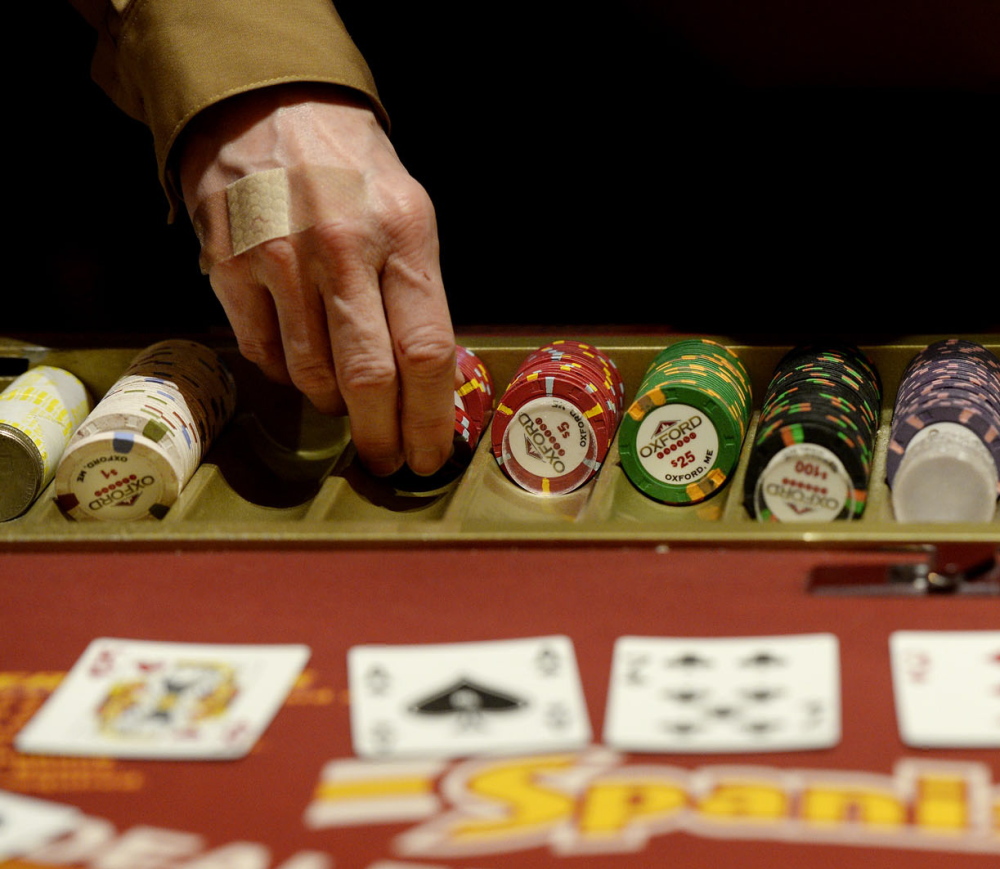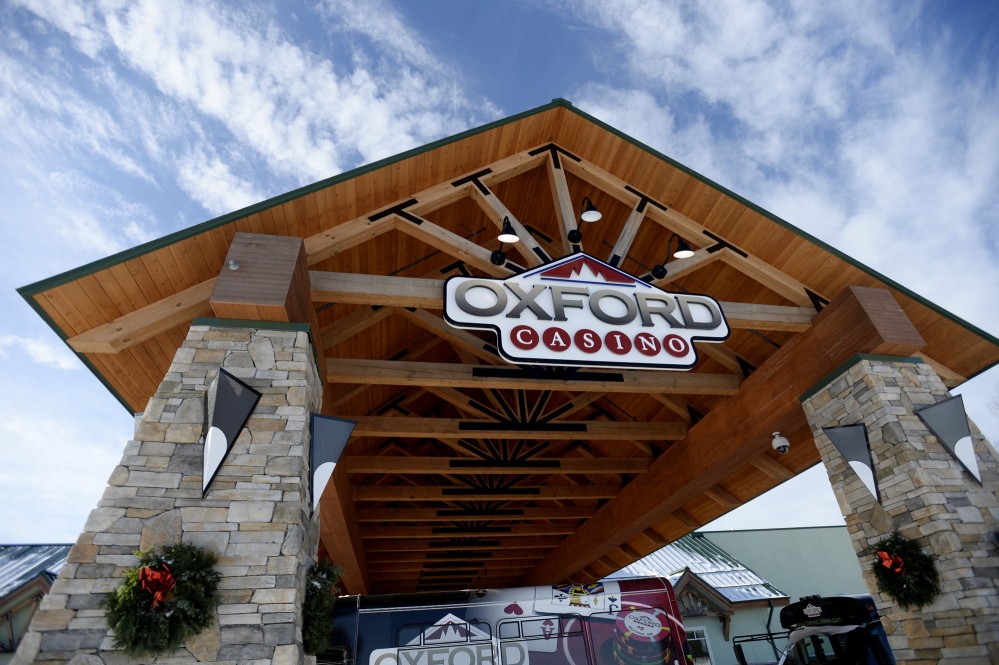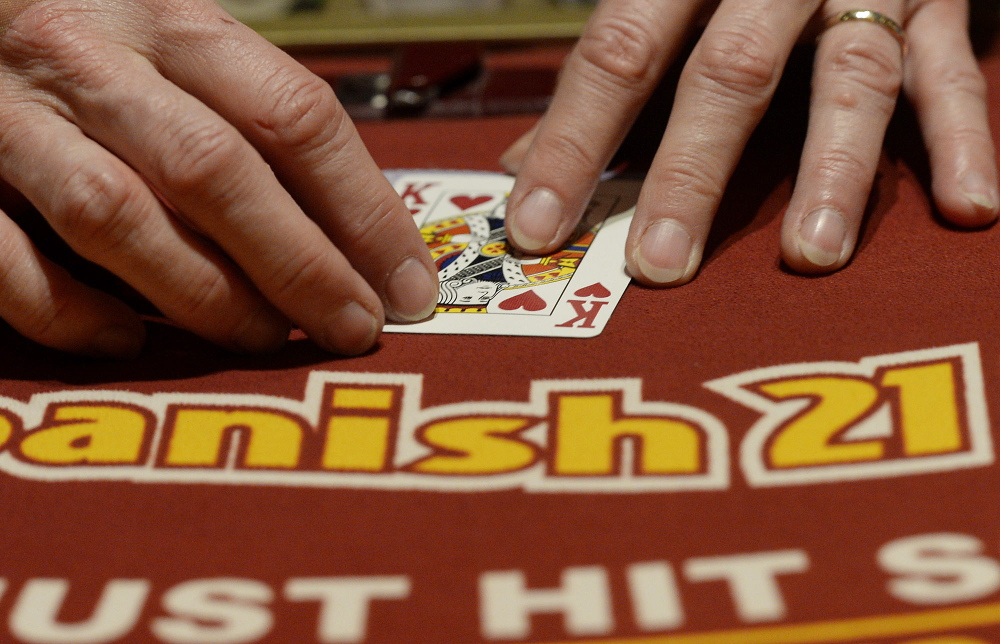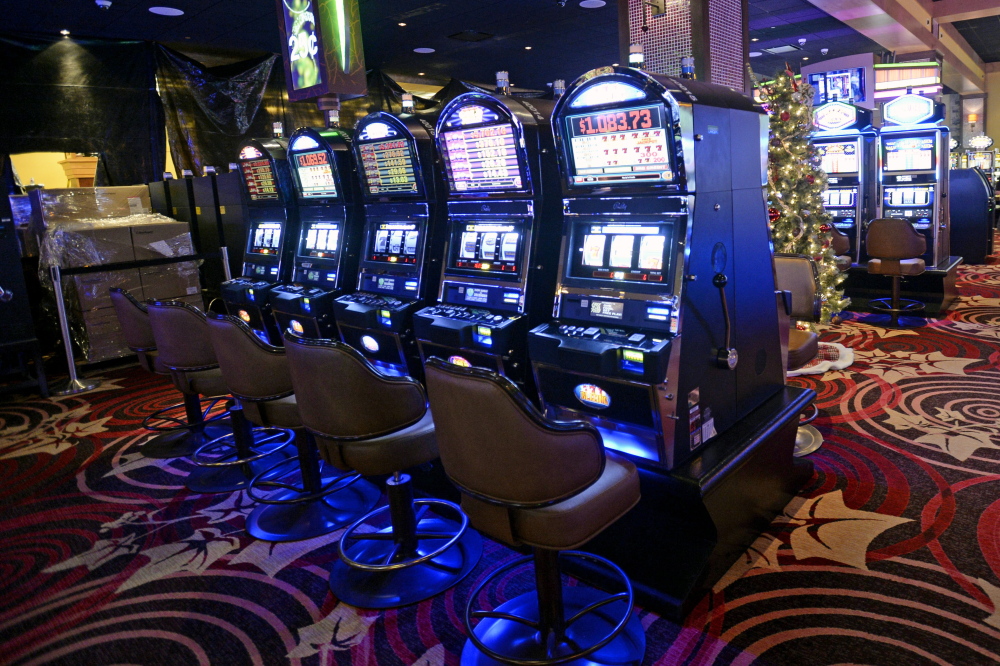Maine schools are on track to get nearly $5 million more than expected this year from the state’s newest casino, the first time casino money will directly benefit Maine’s K-12 schools.
Figures for December from the state’s Revenue Forecasting Committee up the state’s annual portion of Oxford Casino revenues for kindergarten-through-grade 12 education from an anticipated $13.6 million to $18.4 million for 2013-14, and lawmakers in Augusta say they’re keeping a close eye on the money to make sure the funds don’t get raided.
That’s because last spring Gov. Paul LePage used about $14 million from Oxford Casino revenue to close the state’s budget gap as part of a $112 million supplemental budget.
To head off a repeat of that, the Legislature’s Appropriations and Financial Affairs Committee added budget language requiring the casino revenue to go directly to the Department of Education, and prevent it from being earmarked for pet projects.
Lawmakers say they hope that will be enough to keep the money where it was intended to go, but pragmatists agree there’s no guarantee when it comes to spending state money.
“The problem is that, unless you’re really careful and prescriptive, money is fungible,” said Sen. Peter Johnson, R-Greenville, who sits on the Legislature’s Education and Cultural Affairs Committee
“You have to really be careful. I do know that a lot of people are watching that (casino revenue) money like hawks,” Johnson said. “I am. I want to see it used for the purpose intended.”
Rep. Matthea Daughtry, D-Brunswick, said it’s particularly worrisome since the money was unexpectedly rerouted once.
“This is what happens: A one-time diversion becomes a regular thing,” said Daughtry, who also sits on the Education Committee.
Under the 2010 voter referendum that approved Oxford Casino, 25 percent of the casino’s slot revenue and 10 percent of table revenue is earmarked for the Maine Department of Education. The first monthly revenue payments began in July, after it had been open a year.
But on the eve of the first payment, then-Education Commissioner Stephen Bowen notified the Education Committee that the LePage administration planned to divert the funds in a one-time move to close the budget gap, as part of the governor’s $112 million supplemental budget. If they rejected the plan, he explained, then the education budget would be cut by an equal amount, so either way, the funds wouldn’t be there.
The move surprised committee members, but they eventually voted 10-1 to allow the casino funds to go to the General Fund.
“As abhorrent as the decision was, it seemed better than the alternative, which was to cut additional currently allocated funds from (the General Purpose Aid for Local Schools),” a committee member, Rep. Brian Hubbell, D-Bar Harbor, wrote on his blog at the time.
How to spend the casino money came up again during the 2013-14 budget negotiations, when the governor proposed using it for specific education programs. In the end, the budget redirected the money back to the General Purpose Aid for Local Schools, which funds schools directly.
To hammer home the point, however, the Appropriations Committee added language on two specific points:
• The casino revenue must go directly to schools, and local administrators must decide how to spend it – a direct response to LePage’s attempt to earmark it.
• Certain legislative bodies must be notified 30 days in advance if there is any proposal to divert the money before it gets to the Department of Education.
Lawmakers say they are hopeful, but wary, that the language will safeguard the funds.
“I understand that language in the budget as being a plea on the part of the legislators at that point,” Hubbell said.
The governor’s spokeswoman, Adrienne Bennett, did not respond to a request asking if LePage had any plans to earmark casino revenue.
The first test of the budget language could come as early as January, when the Legislature returns to take up a supplemental budget that has yet to be drafted. A major cut to the education fund could mean the casino money is seen as “extra” instead of core funding, said Sen. Rebecca Millett, who co-chairs the Education Committee.
“This will be a test to see if this process works,” said Millett, D-South Portland. “There obviously will be some question about what gets funded and what doesn’t.”
Hubbell said he was also interested to see how it plays out in the next session, and beyond.
“The reality of it is, nothing is safe,” said Hubbell. “It’s irresistible to start out by saying this can’t be used to supplant existing funds, but it’s all one pie so it’s subject to negotiation.”
“It’s important for voters to realize that, since very often (gambling referendums) get sold that way,” he added.
Arguing over how to spend state funds is not unusual, but the debate can become particularly pointed over education funding because of the long-standing frustration on the part of some lawmakers and advocates that the state still falls short of the voter mandate that it fund 55 percent of school costs.
Under the 2013-14 budget, the state contribution amounts to 47 percent, or $942.3 million, toward the roughly $2 billion total cost to provide an adequate education to all Maine students.
One reason the supplemental budget diversion didn’t create a bigger problem is because the state started getting casino revenue in July as scheduled. But the intent had been to allot the casino revenue based on the previous year’s take. By removing that pot of money from the table, the state is now budgeting the casino revenue based on projections from the Revenue Forecasting Committee.
The original 2013-14 estimate of $13.6 million has turned out to be conservative, as the casino has already generated almost $8 million in the first six months of the fiscal year. Next year, revenue may increase further, since the casino is expanding and plans to increase the number of slots and tables in January.
The Oxford slots alone bring in about $1.2 million a month for the Education Department, and the table games portion brings in about $100,000 a month, according to figures from the Maine Gambling Control Board. The monthly take varies, with increases during the summer tourism months, and decreases in the first part of the year.
Although the money is not being earmarked, there is no shortage of suggestions on how to spend any additional education funding. But advocates say voters approved Oxford with the understanding it would go to the school districts, not for pet projects.
“People voted to have the (casino) money go toward education and they expected it to help our kids, maybe even people who were against gambling,” said Lois Kilby-Chesley, president of the Maine Education Association, the union representing the state’s K-12 teachers. “Now we believe all the money is going to education. But we will, of course, keep our eye on it.”
Before the Oxford Casino opened, higher education had been the big winner in Maine when it comes to casino revenue.
Hollywood Slots in Bangor, which opened in 2005, has been sending 2 percent of its net revenue to the University of Maine System for scholarships, and 1 percent to the Maine Community College System. Oxford Casino gives 4 percent of its revenue to the UMaine system and 3 percent to the community college system.
That’s resulted in $5 million in gambling revenue funding 5,876 scholarships between 2005 and 2012. The UMaine system has $3.7 million in hand that will be used for scholarships in 2014 and 2015, a spokeswoman said.
The Maine Community College System has used approximately $3.7 million from Hollywood Slots and $2.5 million from Oxford Casino to fund scholarships, a spokeswoman said.
Education has indirectly benefited from the Maine State Lottery, which was established in 1974. Since then, more than $1 billion in lottery revenue has gone to the state’s General Fund, with an average of about $50 million a year. Those funds are then redistributed to various state programs, but none of the money is specifically earmarked for education.
Noel K. Gallagher can be contacted at 791-6387 or at:
ngallagher@pressherald.com
Send questions/comments to the editors.







Comments are no longer available on this story